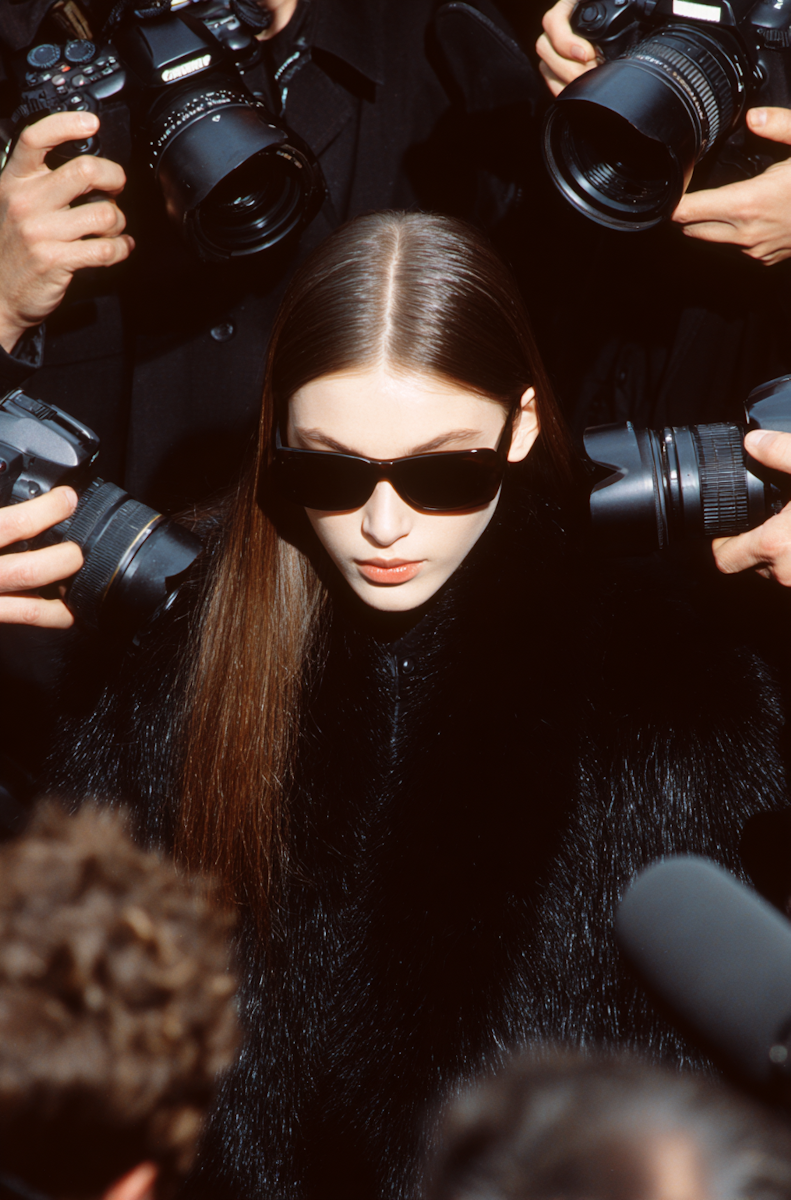What Sydney Sweeney + American Eagle’s ‘Good Genes’ Ad Reveals About Brand Reputation in 2025
Get weekly strategy insights by our best humans
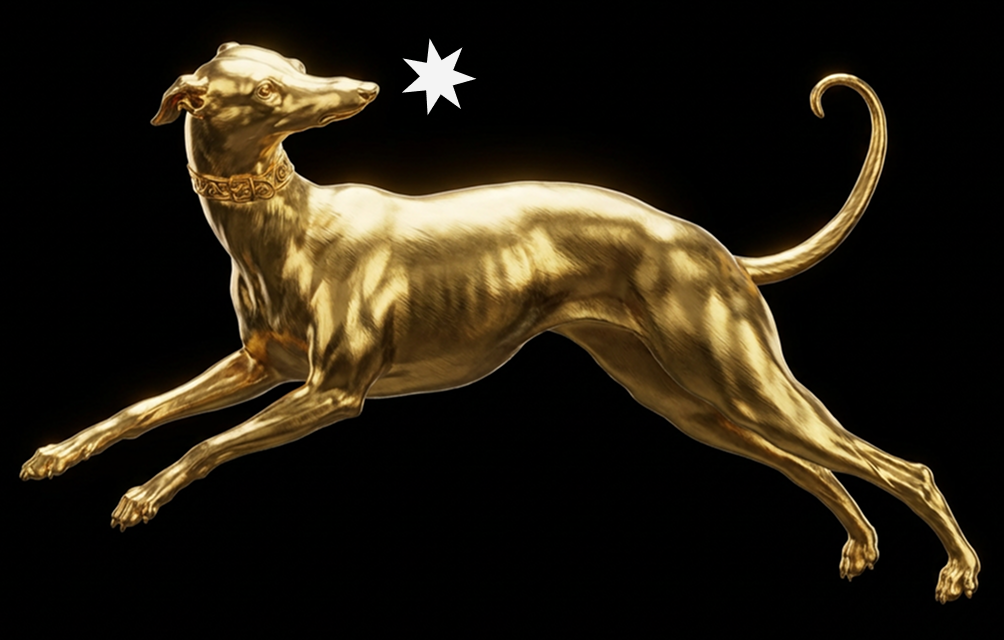
American Eagle’s latest denim campaign starring Sydney Sweeney was meant to be cheeky and nostalgic—playing on the phrase “great genes” and showcasing her attractiveness to highlight their new line of jeans. But the internet heard something else: blonde, blue-eyed actress… great genes? Cue accusations of eugenics-coded messaging, white supremacist aesthetics, sexism, and a wave of cultural backlash the brand didn’t seem prepared to handle.
In this issue of The Current Thing, we break down:
- How “culture-bait” marketing works—and when it backfires
- How Sydney Sweeney’s public persona and personal branding shaped the reaction.
- Whether the controversy was accidental or intentional marketing
- And what it really means to scale a brand without becoming culturally tone-deaf
The American Eagle “Good Jeans” Campaign
Sydney Sweeney’s new American Eagle ‘Good Jeans’ ad accused of being Nazi propaganda
American Eagle (AEO) kicked off its Fall 2025 denim campaign with the cheeky tagline “Sydney Sweeney Has Great Jeans.” The phrase is a deliberate double entendre playing on “jeans” vs. “genes”.
In the campaign video and imagery, Euphoria star Sydney Sweeney – blonde, blue-eyed, and all-American – showcases the brand’s new wide-leg denim line. The ad leans heavily into the wordplay: Sweeney’s voiceover talks about how “genes” (as in DNA) determine traits like eye color and personality, while visually she’s flaunting jeans (as in denim pants). One spot has her lying on her back buttoning up her jeans while explaining in a sultry tone, “Genes are passed down from parents to offspring… My jeans are blue,” before a male announcer concludes with the tagline, “Sydney Sweeney has great jeans.”
American Eagle on Instagram: "Posters up. Secrets out: Sydney Sweeney has great jeans."
AEO seemed to be aiming for a playful, retro vibe – even invoking the nostalgia of classic 1980s denim ads. In fact, some observers thought the campaign was referencing Brooke Shields’ 1980 Calvin Klein commercials, which similarly riffed on jeans/genes wordplay.
On a sidenote: Those CK ads courted controversy of their own, since a 15-year-old Shields was sexualized in them – a point that makes the allusion here even more eyebrow-raising.
1980 Calvin Klein Jeans Commercial feat. Brooke Shields
American Eagle’s press release described the Sweeney campaign as “bold,” “playful,” and “cheeky,” highlighting Sweeney’s “allure” and the brand’s denim “mischief”. They even rolled out giant 3D billboards (from New York’s Times Square to the new Sphere in Las Vegas) featuring Sweeney interacting with the slogan in eye-catching ways. By all accounts, AEO thought they had a clever hit on their hands – a fun wordplay to grab attention and celebrate “great genes/jeans.”
“Good Genes”, Sex-Appeal and Bad Reactions
What American Eagle apparently didn’t anticipate was just how that wordplay would land with the public. The backlash was immediate and intense. Almost as soon as the campaign dropped, social media lit up with criticism, saying the slogan “has great genes” carried ugly echoes of racist ideology.
Commenters pointed out that praising someone’s “good genes” – especially a white, blonde, blue-eyed person – smacks of eugenics, the debunked pseudoscience that promoted selective breeding and genetic “purity” in the early 20th century. The very phrase “good genes” is rooted in eugenics and since the early 20th century, it’s been a common talking point in white supremacist propaganda. In other words, what AEO saw as a harmless pun triggered reminders of a very dark history.
Many Gen Z and millennial viewers found the ad’s messaging tone-deaf at best and outright harmful at worst. TikTok exploded with dissective commentary. Users on X (Twitter), Instagram, and other platforms drew parallels to “white supremacy dog whistles” in the campaign. On American Eagle’s own official posts, the comment sections filled up with horrified reactions.
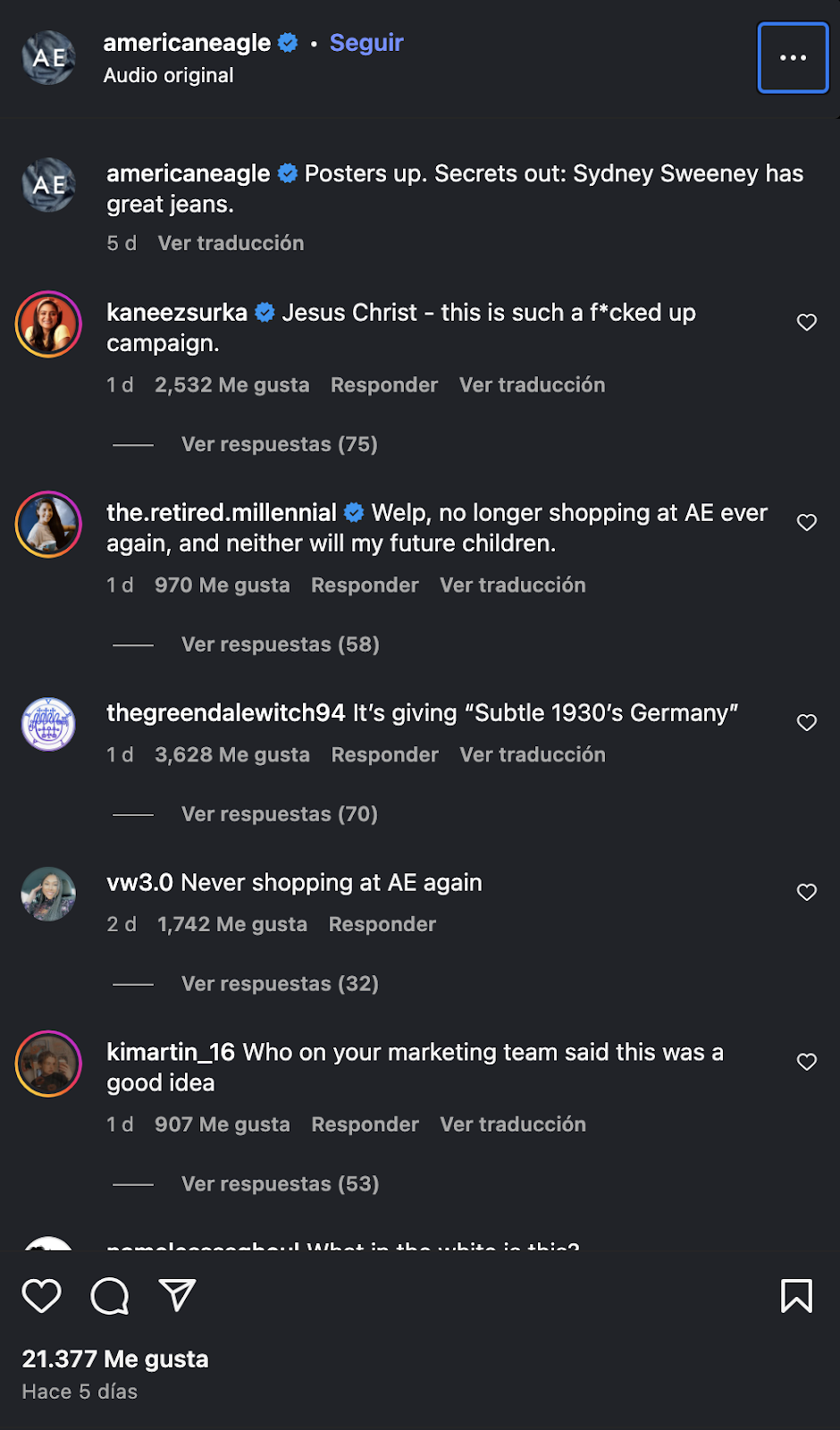
Beyond the genetic undertones, others took issue with the ad’s sexualization and retrograde feel. Some saw the campaign as fetishizing Sweeney’s body under the guise of a joke, noting how much the camera lingered on her “great” physical attributes. But also, it was seen as a Brooke Shields déjà vu. Several commenters were reminded of Brooke Shields’ old Calvin Klein ads (where she famously quipped nothing comes between her and her Calvins).
Shields herself has since criticized how those 1980 ads sexualized her as a minor, so seeing American Eagle play a similar card – with Sweeney suggestively cleaning a poster of herself in denim, or purring lines about her body – struck some as problematic and even “disrespectful” to Shields’ legacy.
In short, what was meant to be a fun pun turned into a PR nightmare for American Eagle. The slogan “Has Great Genes/Jeans” brushed against issues of beauty standards, racial implications, and gender objectification – a combination bound to ignite debate in 2025.
Damage Control: Deleting Evidence (But Not Really)
Faced with the uproar, American Eagle took some swift (if quiet) action. The most overtly controversial videos from the campaign were pulled from the brand’s official channels – the YouTube upload of the Sweeney commercial was deleted, and certain clips vanished from AEO’s TikTok and Instagram. (Of course, nothing truly disappears on the internet).
Interestingly, American Eagle did not scrub all traces of the campaign. As of the end of July, the company’s Instagram still proudly features posts with the tagline, including one captioned “Posters up. Secret’s out: Sydney Sweeney has great jeans.”
COMPLEX on Instagram: "Sydney Sweeney hits the billboards in 3D [🎥: @_reference ]"
And in New York’s Times Square, the giant 3D billboard of Sweeney in denim – with those very words – has been lighting up the skyline. In other words, AEO removed the explicit video ads but left the core message standing, perhaps hoping the controversy would blow over while they continued to benefit from the campaign’s visibility.
So far, American Eagle has not issued any formal public apology or statement addressing the backlash. Sydney Sweeney herself has also remained mum on the issue. Instead of engaging with the discourse, the 27-year-old actress went on with business as usual. In essence, both the brand and its star ambassador seem to be waiting out the storm. Whether that silence is the right PR move is up for debate – critics are interpreting it as the company hoping people simply “forget” and move on.
Courting Controversy: Oldest Trick in the Marketing Book
It’s hard to ignore the critical take: Was this blunder entirely accidental, or was it a calculated strategy? In the advertising world, controversy is a tale as old as time. Brands have long known that pushing people’s buttons can generate priceless buzz.
A provocative campaign can get far more free press coverage and social media chatter than a safe, bland one – effectively turning outraged consumers into an army of unpaid publicity agents. You just need to step a little outside the lines of political correctness, and boom – the internet will do the rest and amplify your message everywhere, especially in today’s “woke/anti-woke” divide..
We’ve seen it time and again. Calvin Klein, for instance, rode to fashion infamy on the back of risqué ads (including the Brooke Shields campaign and later the controversial ’90s “heroin chic” imagery).
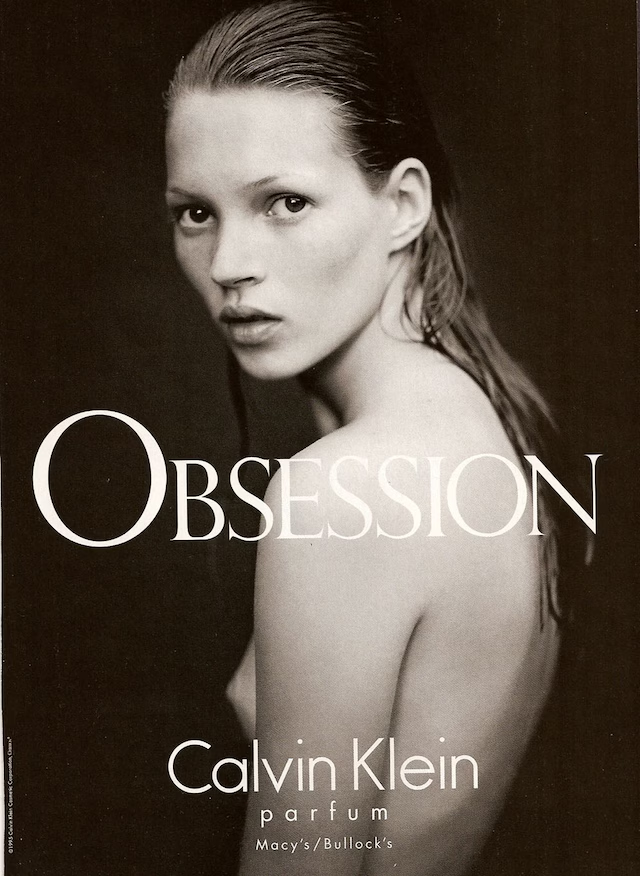
Benetton in the ’90s ran shocking ads (like the famous AIDS patient billboard or a priest kissing a nun) to get people talking. Even scandalous celebrity moments often turn into marketing fuel as well, and Sydney Sweeney knows this very well (more on that in the next section).
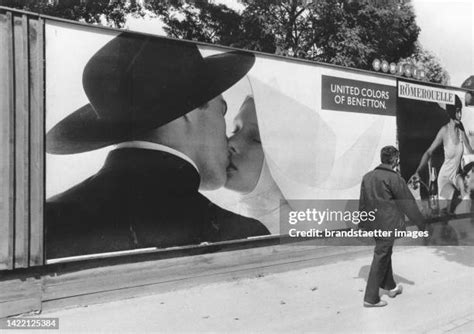
The playbook is simple: stir emotion, grab attention, and reap the awareness. Controversy, after all, can be cheaper than a Super Bowl ad – the public itself becomes the distributor of your message.
American Eagle’s campaign seems to fit this pattern, whether by intention or by happy accident. The initial results certainly looked good from a publicity standpoint. The outcry over “Good Genes” made headlines across major media and was a trending topic on TikTok. By some accounts, American Eagle’s stock even got an 18% boost in the immediate aftermath. The campaign launch coincided with a notable bump in AEO’s share price, which financial analysts attributed to the viral attention – a bit of a meme-stock frenzy fueled by the Sweeney hype.
However, courting controversy is a high-risk gamble. What boosts engagement in the short run can damage brand goodwill in the long run. Social media sentiment (always fickle) could easily turn into real-world action if enough customers decide this misstep is a deal-breaker. And unlike an edgy fashion house that thrives on being subversive, American Eagle’s core identity has always been mainstream, wholesome, all-American apparel. Offending a large swath of the public – especially the socially conscious Gen Z demographic that AEO courts – might undermine the very brand image they were trying to reinforce with the Sweeney campaign.
So was it worth it? Was the “Sydney Sweeney has great genes/jeans” slogan a case of a copywriter team simply not thinking things through? Or a move to generate buzz by pushing people’s outrage buttons? We may never know for sure. It’s entirely possible the campaign’s creators truly saw the pun as innocent and were blindsided by the eugenics association. On the other hand, given how frequently “shock advertising” makes a splash, AEO may have known the risk and went for it anyway, aiming to spark exactly the debate that ensued.
Sydney Sweeney’s Personal Branding as an Amplifier
It’s worth looking at Sydney Sweeney’s own brand in this equation. Sweeney isn’t just a passive model in this ad; she’s a rising Hollywood star who has proven to be quite media-savvy about her image and publicity. In fact, this isn’t the first time her name has been entangled with controversy – and sometimes she has been the one strategically stirring the pot.
Consider Sweeney’s recent press antics. Earlier this year, she was promoting a rom-com film (Anyone But You) with co-star Glen Powell. The duo went viral for their flirty off-screen chemistry, sparking rumors of a real-life affair – rumors that conveniently kept the movie in the headlines. Later, it came out that this was no accidental gossip: Sweeney herself orchestrated the fake-romance buzz as a marketing ploy.
“I was on every call. I was in text group chats… I couldn’t stop with ideas,” Sweeney admitted, describing how she helped manufacture the Glen Powell dating narrative to engage the audience. In other words, she consciously leaned into being objectified as a “desirable young starlet” to sell her project, and it worked. The film’s director even applauded her savvy, noting the tactic was “straight out of the rom-com marketing playbook” and praising Sweeney as “very smart” about leveraging chemistry and gossip.
“I wanted to make sure that we were actively having a conversation with the audience as we were promoting this film, because at the end of the day, they’re the ones who created the entire narrative.”
Dr. Squatch | "Dirty Little Boys" | Natural Body Wash
Then there’s Sweeney’s foray into the world of…personal hygiene products. In a headline-grabbing move, Sydney Sweeney became the spokesperson for a male-oriented soap brand (Dr. Squatch) and helped launch a limited-edition bar amusingly called “Sydney’s Bathwater Bliss.” Yes – it’s literally a soap infused with water from Sweeney’s own bath.

This cheeky product plays on a long-running joke (that a woman is so attractive men would “drink her bathwater” just to feel close to her) and pushes Sweeney’s sex appeal to tongue-in-cheek extremes. It’s absurd, provocative, and squarely aimed at young male consumers. And notably, it kept Sweeney trending on social media, for better or worse.
These examples show how Sweeney often leans into the male gaze and controversy as part of her personal brand strategy. She has found empowerment (and lucrative partnerships) in co-opting the very stereotypes and fantasies thrown at her. Indeed, Sweeney’s public image has been a mix of admiration and debate: she’s celebrated as a bombshell actress, yet questioned for how far she goes in commodifying her own appeal. Even before the American Eagle saga, the internet was conflicted about Sweeney’s stance on feminism and social issues, pointing to incidents like her silence over a family member’s controversial political attire (which blew up into a mini scandal on Twitter) and the whole bathwater soap affair. In light of that, it’s not surprising that the “Good Genes” controversy found an even larger target in Sweeney personally – casting her (fairly or not) as a symbol of white privilege and shallow, looks-based “girlboss” feminism that many young people are now critiquing.
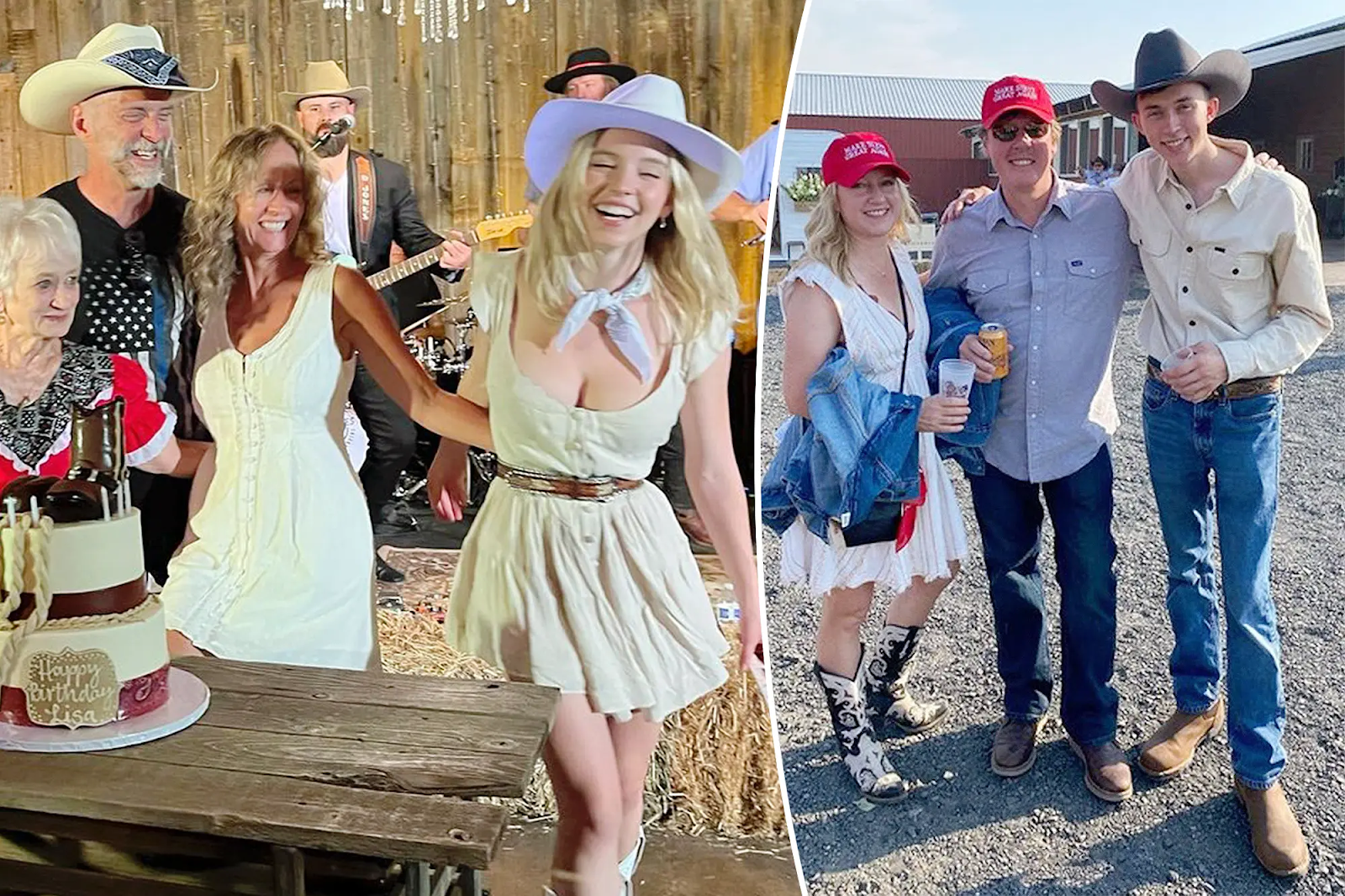
Sydney Sweeney at her mom’s birthday party.
Brand Reputation vs. Free Publicity: Who Wins?
At the intersection of all this – the ad, the outrage, the star, and the strategy – lies the big question: Was the controversy ultimately a boon or a blow? It’s a nuanced answer. On one hand, everyone is talking about American Eagle. The brand got name-dropped in countless tweets, TikToks, news articles, and YouTube breakdowns over the past week. That kind of cultural saturation is something money can’t easily buy. The initial sales indicators (and that stock price bump) suggest that curiosity and attention did translate into consumer interest. For Sydney Sweeney, the ad certainly kept her in the spotlight during a year when she’s been actively building her commercial portfolio (from fashion and cosmetics deals to random ventures like ice cream collabs and the aforementioned soap). In showbiz, staying relevant is half the battle, and this controversy, oddly enough, may have added to Sweeney’s aura as the “it girl” who everyone has an opinion on.
On the other hand, the backlash has undeniably put a dent in American Eagle’s image – at least among certain demographics. For a clothing company that prides itself on inclusivity and positive vibes (AEO’s slogan is literally “Live Your Life,” focusing on youth optimism and individuality), being accused of echoing eugenics is not exactly on-brand.
Did It Work?
Depends on your KPI. If the goal was cultural resonance and positive brand affinity, the execution backfired. The campaign alienated parts of their Gen Z base—who care about inclusivity and are quick to hold brands accountable. It raised serious questions about American Eagle’s values and decision-making. And it reopened uncomfortable conversations about beauty, race, and marketing's historic blind spots.
But if the goal was reach and attention, it worked. Everyone was talking about American Eagle. The phrase “good genes” was memed, dissected, and circulated across millions of feeds. AEO’s stock even saw a minor bump post-launch. That kind of virality can be intoxicating—especially if you measure success in impressions, not in long-term brand trust.
So, What’s the Real Lesson Here?
The Sydney Sweeney x American Eagle campaign will live on as a case study in culture-bait marketing. It’s a reminder that in a post-woke, algorithm-fueled world, controversy is still the fastest way to trend. But it’s also a reminder that trending doesn’t equal trust.
As marketers, we need to stop treating virality as an end in itself. You should always be able to predict how a campaign will land and plan for cultural impact. American Eagle may have benefited in the short term. But as the initial buzz fades, the real question is what lingers in the public imagination.
Want to build a brand that sparks conversation and earns long-term trust?
At Postdigitalist, we help ambitious teams go beyond buzz—with strategies grounded in cultural insight, not just clickbait. Whether you're building a content engine, launching a product, or repositioning your company, we implement cultural intelligence to keep your story distinct, timely, and future-proof.
Start smarter:
- Browse our trend memos, where we decode emerging cultural signals to help you align your brand with what’s shaping society now.
- Book a free workshop with our team (we open 4 spots per month) to get tailored advice on your brand or content strategy.
- Explore our Brand Sprints, built to clarify your positioning and narrative in just a few focused sessions.
- Run an AEO & SEO Sprint with us to align your content strategy, technical foundations, and search opportunity around what truly drives qualified traffic.
- Download our free pSEO handbook to learn how to scale content with purpose (not just volume) using programmatic SEO.
Let’s make your brand impossible to ignore for the reasons you want to be remembered for.

